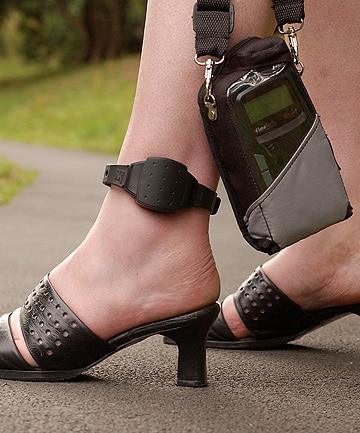Last week, a motion for new trial made news when Hon. Christopher J. McFadden granted a new trial after finding that the verdict was “strongly against the weight of the evidence.” The State’s reaction was three-fold. First, it appealed the decision. Secondly, the State made comments in the press. Third, the State moved to recuse the judge who entered the order. According to Bill Rankin and Steve Visser of the Atlanta Journal-Constitution, Judge McFadden came “Under Fire” for his decision. This has been a difficult story for me to follow. For one, I profoundly respect the professionalism and integrity of Mr. Ballard and Judge McFadden. I have cases against this particular DA and his office on a regular basis. In the years I have had cases with the DA and his office, I have never found a more professional, talented, and reasonable group. And I have known the judge since his time in private practice. He ran a grassroots campaign and won a contested state-wide election for the Court of Appeals. And to clear a little confusion up, Judge McFadden was an appellate judge who presided over this criminal trial by designation. I’m sure both of these men believe that they did the right thing in the case. It is certain that the DA firmly believes that the judge did not do the right thing. The other reason that this has been a difficult story to follow, is that while we lawyers are free to comment about the result of cases in speaking to the press, judges are not ethically at liberty to defend their actions in the press. All members of the public may not know that. So, when a judge does not respond, members of the public may draw all of the negative conclusions that they would typically draw when a person in a controversial matter “declines to comment.” Judges can’t discuss an ongoing case with the press and really shouldn’t. I could say why, but hopefully it’s self-evident.
Not Acting Like a Victim
There were a few other things of concern from this story. For one, the ABA Journal highlights a statement from the order granting the new trial and quotes it out of context. The article notes the finding that the complaining witness in the case was not “acting like a victim.” This statement could seem shocking if read out of context. And I do not know nearly enough about the case to comment about the exact import of that statement under this unique set of facts. However, having defended many cases like this at the trial and appellate court level, how the defendant and complaining witness act after an alleged rape can be important. If a complaining witness continues to be friends with an alleged rapist, delays in calling the police, or acts as if he or she is not frightened of the defendant for a period of time before reporting a rape, those facts can be important for a jury to hear. And in Georgia, by a long tradition in the law, a judge can act “metaphorically” as the 13th juror if he decides that the verdict is “strongly against the weight of the evidence.” So, judges can weigh the evidence and set aside a decision; it is part of the function of judges in the State of Georgia to do that.
While the DA in this case strongly disagrees with this particular judge’s assessment of the actions of the complaining witness in this particular case, he would not disagree that how a victim “acts” is an important component in a victim’s believability. This DA writes a popular column in a local newspaper. In a recent column, titled “The Game Within the Game,” the DA, Scott Ballard, wrote on that very subject. After some introductory comment about the case, the DA wrote about whether the defendant acted like a perpetrator and contrasted it with how the child acted like a victim:
In this case, the defendant lived a life that paid little regard to commonly accepted sexual boundaries. He had multiple partners. They did kinky stuff. You get the picture. It wouldn’t be a huge leap to believe that he would do prohibited acts with children.So, why would the child say this happened if it didn’t? Here the defense had real issues. For one thing, we had more than one victim. For another, the girls were too young to know much about sexual matters.The defense did what they usually do. They tried to inject adults into the mix. Adults were angry with the defendant and “coached” the children. To try to prove that, they look at the language the children used to report the abuse. Was it “age appropriate?” They probe into the circumstances of the report of abuse. Was it timed in a way to benefit some enemy of the defendant? How do we combat this defense? The children testify.So, Ben called the children to the witness stand and asked them to share with the jury the sickening things the defendant did to them. Let me give you a brief glimpse.A frail, thin girl—she looked about ten years old—walked slowly into the courtroom. Her hair was the color of a carrot. And she was scared.Ben asked her questions designed to assure everyone that she understood the importance of telling the truth. It was clear that she did. Then he asked her,“Do you remember meeting with me a few days ago and talking about how it would feel to come in here today?” The girl nodded gently. Ben continued. “I told you that you would probably be nervous and that I would be nervous, too?” The little auburn head nodded again.
The “game within the game” was the character and actions of the defendant versus the character and actions of the victim. Would it be a leap to believe that Thomaston, Georgia’s version of Caligula would molest a child? And would a frail thin girl who “nods gently” “walks slowly into the courtroom” and act nervously make up a story like this? The answer for this DA, under those particular circumstances, is “no.” Does the truth of the “game within the game” not apply the the benefit of the defendant and sometimes against the credibility of a victim’s account? Whether a particular witness acts “like a victim” was an important element in the case described in the column. And if we are to accept its importance in cases with a guilty defendant and innocent victim, the converse would also be true, no?
That one line is less shocking when placed in the larger context of the sixteen-page Order. The Order is worth reading in its entirety (PDF).
The Impartiality of the Court of Appeals
The press coverage also suggests that every judge on the Court of Appeals my have to recuse themselves when this case reaches that court. In particular, the article quotes Mr. Ballard as asking rhetorically about the prospect of the case getting to the Court of Appeals:
Ballard said he is now appealing that decision to the same appeals court on which McFadden sits. “How awkward is that?” Ballard asked.
The answer to “how awkward is that?” is “not very.” Judge McFadden wouldn’t participate in the Court’s consideration of this case, for several reasons. First, he would certainly recuse himself from the case in the appellate court. Secondly, the Court of Appeals works in three-judge panels. It is a rare case that goes to the whole Court. It is not unusual for an appellate judge to sit by designation over a trial court or for a trial judge to sit as a justice on the Supreme Court by designation. Indeed, when Judge McFadden was selected to hear the trial of this rape case by designation, it was not outside the realm of possibility that it would make its way to the Court of Appeals one day. Parties have the opportunity to object to an appellate judge sitting by designation in a trial. And if there might be some “awkwardness” down the road with the case going to the Court of Appeals, those parties may object before the trial starts. And if you don’t object going in, you waive the right to do so later. I don’t know if that happened in this case before the motion for new trial was granted or not.
More importantly, our appellate courts handle these sorts of things well. For instance, Judge Carla McMillian came to the Court of Appeals from her previous post as the judge in the State Court of Fayette County. Her rulings have made their way to the Court of Appeals, and her current colleagues have even managed to disagree with her on occasion. I’m not an insider at the Court, but none of that has seemed particularly awkward. She wasn’t on the panels that considered her judgment. Judge Michael Boggs came to the Court of Appeals from the Waycross Judicial Circuit. His decisions have made their way to the Court of Appeals in the early days of his tenure. If there’s been any awkwardness, I’m not aware. In all of the controversy surrounding his confirmation to the Federal bench, this subject has never come up. And, more recently, Justice Keith Blackwell has been appointed to the Supreme Court of Georgia after he was a judge on the Court of Appeals. This transition has not created a crisis of partiality.
Even in the trial court, Superior Court judges are frequently called upon to sign a search warrant, where that warrant is later the subject of a motion to suppress before the very same judge. And trial judges in every motion for new trial are asked to assess whether they committed judicial error as they presided over a case at trial. And yet our system works very well.
The Georgia Court of Appeals will handle this case with impartiality and professionalism, because this situation is not as unprecedented as a casual reader of the AJC article might think. And the Court has acted with impartiality and professionalism in those instances.
Conclusion
This case will run its course. I place great faith in our system. But that faith is only as strong as the public’s confidence in the integrity of an independent judiciary. The media component of things like this, with conclusions that get wrong the basics of how our appellate courts function, make me fear what lies ahead for our judiciary.




 In the past year, I have worked on a new category of appeal in an area that did not exist when I came out of law school and was in its infancy when I started focusing on appellate law. Those appeals have been in a Georgia administrative agency called the
In the past year, I have worked on a new category of appeal in an area that did not exist when I came out of law school and was in its infancy when I started focusing on appellate law. Those appeals have been in a Georgia administrative agency called the